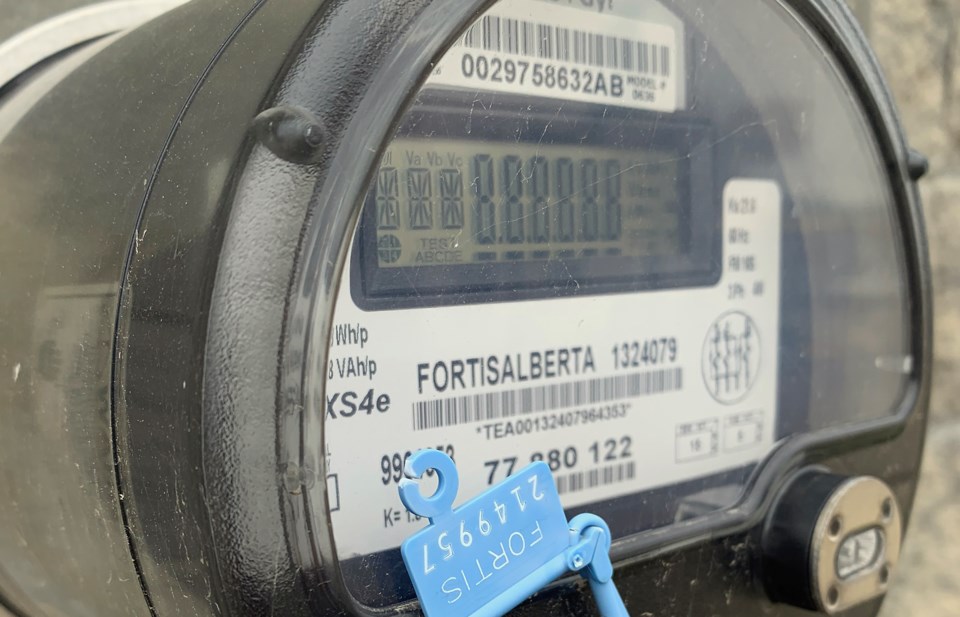WESTLOCK - Town of Westlock councillors have decided to hold the line on the franchise fees the municipality charges natural gas and electricity companies, forgoing just over $70,000 in revenue.
At their Oct. 13 meeting, councillors voted 6-1 to keep the fees, set at 12 per cent for electricity and 25 per cent for natural gas, status quo. Coun. David Truckey, who voted against keeping the fee unchanged, had previously made a motion (lost by a 3-4 vote) to postpone the fee discussion until council’s Oct. 26 meeting.
Under the Municipal Government Act, municipalities can charge utility companies a franchise fee, calculated as a percentage of the company’s actual total revenue, for providing service within their boundaries — the gas fee is capped provincially at 35 per cent, while electricity is limited to 20 per cent. The town made $648,851 via the gas franchise fee in 2019 and are estimating a $541,320 windfall from the electricity fee in 2020 — municipalities annually review the percentages, with a Nov. 15 deadline for changes.
Administration had recommended a one per cent hike to both fees, which they estimated would have led to a $70,460 increase in revenue — status quo, the town estimates they’ll make $1,196,971 in 2021, while a one per cent increase would have generated $1,267,431.
For residents, administration estimated a one per cent hike to both fees would have led to an added $.71 monthly charge for gas (based on 10 GJs of monthly consumption) and an additional $1.21 monthly fee for electricity (based on 640 kWh of monthly consumption).
“I’m having some reservations. We’ve already decided not to increase taxes this year — we revoked what we were going to do in 2020 due to COVID and the effect it’s having on people in our business community. This would be another cost to our citizens and businesses when we still haven’t seen the full fallout from the pandemic,” said Coun. Randy Wold, who made the motion not to increase the fees.
Council noted that franchise fees allow the municipality to generate revenue from entities like schools and hospitals, which are exempt from paying property taxes. For the town, CAO Simone Wiley said that upping the fees by one per cent would have meant a $6,120 increase to its power bill and $2,020 more spent on natural gas. As an aside, Wiley noted that a one per cent increase to franchise fee equals about a one per cent jump to taxes.
“I’ve always been a big proponent of franchise fees as I think they do provide an equitable method to distribute the costs of the municipality across the entire consumption range,” said Truckey. “In a consumption-based system, the ratepayer, whether a resident or business, can make every move they need to cut those costs. You can control the amount of utility that you use. You cannot control the amount of property tax that a municipality levies.”
Fee hike in 2021?
Although they’ve agreed to keep the fees status quo, councillors agreed to revisit the issue in 2021. Jamaly blue-skied the notion of significantly raising the franchise fee, while lowering the mill rate to specifically target institutions that don’t pay property taxes, while Coun. John Shoemaker said they could target specific tax-exempt institutions with an increased franchise or utility fee.
“Maybe we should raise it to 30 per cent and then we should lower taxes by the equivalent amount so that the average taxpayer and the average small business owner, they see a reduction and you incentivize the right behaviour to use less power,” said Jamaly.
While intrigued by the discussion, councillors said they want hard data before making any radical changes. Finance director Julia Seppola noted that she’s been told by Fortis that there are only four area businesses that draw either the same, or more power than the town.
“I wouldn’t be supportive of making a drastic shift and just seeing how it plays out. We could do the math for next year and have those discussions at budget time and see what our commercial mill rate could be if we had a more equitable revenue stream through the utilities. I’d be interested in seeing all the ramifications before we make that drastic a decision,” said mayor Ralph Leriger. “We always have to be cognizant of unintended consequences. If we’re trying to attract more manufacturing and they see that we’re maxed out on utility franchise fees, that could be a deal breaker.”
Added Jamaly: “Let’s do the research, let’s get an understanding and come back in a year and then determine if we’re going to make a change.”



